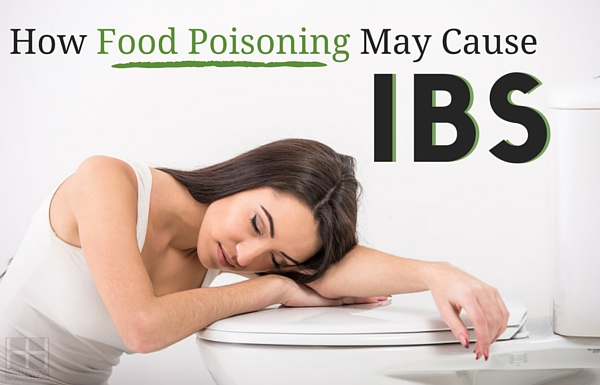
For years, the medical community didn’t take irritable bowel syndrome seriously. They would dismiss it as being due to stress, and prescribe some fiber supplements or anti-diarrhea medicines. Luckily, that is changing and it is in large part due to the work of Dr. Mark Pimentel.
Dr. Pimentel made a huge breakthrough in IBS research when he realized that IBS patients had certain antibodies in their bodies. This allowed him to develop a test — IBSChek — which looks for the antibodies. The presence of these antibodies can diagnose diarrhea-predominant IBS with 90% accuracy.
In developing IBSChek, Pimentel not only made a quick, easy way to diagnose IBS, but also figured out what really caused IBS in the first place. This article will outline what IBSChek is and how it shows that IBS is caused by food poisoning.
How IBSChek Works
In Dr. Pimentel’s studies, he found that patients with IBS had two antibodies in their bodies which were not found in healthy subjects or patients with IBD. These antibodies are anti-CdtB and anti-vinculin antibodies.
Quick Recap: An antibody is a protein that the body produces when it detects a harmful substance called an antigen (such as a bacterium, virus, etc.). Antibodies are like locks and keys in that one antibody only fits one antigen.
Anti-CdtB is an antibody which is made in response to Cytolethal distending toxin (Cdt) type B. These toxins are produced by certain bacteria, such as E. coli, Salmonella, and Shigella (many other bacteria also produce the toxin, but these are the ones we are most familiar with). Basically, if you get infected by these bacteria, your body produces anti-CdtB to fight the toxins.
Antibodies are normally a good thing, but sometimes our immune system gets a bit confused. It can mistake healthy cells as the antigens they are trying to fight off. In the case of anti-CdtB, the antibody can mistakenly start attacking vinculin.
Vinculin are proteins which line the intestine. They connect cells within the gut, including the Interstitial Cells of Cajal – which are the cells which act as a pacemaker to control motility. As we’ve been talking about throughout this book, IBS is essentially a motility problem. If the gut isn’t moving in a coordinated way, you end up with problems like painful spasms, diarrhea, constipation, and backflow from one part of the gut to another. (Source 1)
It is important to note that bacteria –including ones like E. Coli which produce the toxins associated with the IBS antibodies – are always present in our bodies. But, in small amounts and balanced with the rest of the gut flora, these “bad” bacteria do not cause harm. If they are allowed to grow out of control, then they can become toxic.
What The Presence of these Antibodies Means
In Dr. Pimentel’s research, he and his team discovered that many cases of IBS occurred after the patients had had an episode of gastroenteritis. Other researchers have also found this link, with one team concluding that the risk of getting IBS increases by 6x after a case of bacterial-confirmed gastroenteritis. (Source) This led them to believe that IBS is caused by a case of food poisoning which went on to damage the nerves in the gut. Here is how it might happen.
A person has a case of food poisoning. The bacteria produce Cytolethal distending toxin type B (CdtB).
The body produces the antibody anti-CdtB to fight off the toxins from the bacteria. But the anti-CdtB also starts to attack the vinculin in the gut. In this sense, IBS is an autoimmune disease because the body is attacking itself. The damaged vinculin in the gut can no longer communicate effectively with the brain. This impairs motility and causes IBS symptoms.
Even after the case of food poisoning (or whatever caused the infection) is over, the antibodies to the bacteria toxin can still remain. This is how they can continue to damage your gut even after you aren’t infected anymore. Dr. Pimentel discovered this when they developed the anti-cdtb antibody and applied it to the intestines of rats. The antibody bound to the neuromuscular parts of the gut in both rats who did have an infection and the rats without a bacterial infection. This shows that the anti-cdtb is reacting to the host, and not just the bacteria. (Source)
- A person gets a case of food poisoning, such as from E. Coli
- The bacteria produces Cdt-b toxin
- The body produces antibodies (anti-cdtb) to fight the toxin
- The bacterial infection goes away, but the antibodies remain in the body
- The antibodies damage the vinculin protein in the gut
- Nerve damage occurs in the gut, resulting in motility problems and IBS symptoms
Impaired motility doesn’t just cause IBS symptoms. It can also lead to SIBO – a condition in which you have too much and/or the wrong type of bacteria in your small intestine. We will talk more about the IBS-SIBO link in the next chapter. Dr. Pimentel and his team believe that 20% of people who are exposed to the Cdt-b toxin will go on to develop SIBO. (Source) SIBO causes many of the exact same symptoms as IBS, so your IBS might actually be a case of misdiagnosed SIBO.
UPDATE:
Want to find out if SIBO is the real cause of your IBS? You’ll need to take a hydrogen/methane breath test (learn more about them here).
The good news is that you can now order one without a doctor’s request. While I’m a HUGE fan of having a doctor’s guidance, I understand the need to know whether you have SIBO or not before you invest in a practitioner.
You can order the test and it will be sent to your home (note that some states still don’t allow you to order tests; sorry).
***Use the coupon code HOLLYWOOD to get an additional $5 off. The coupon applies to all lab tests that you order!
What This Tells Us
The antibodies associated with IBS give us solid clues to what caused IBS in many cases. However, it doesn’t explain all the cases of IBS nor does it explain why certain people get IBS after gut infections and others don’t.
Again, I need to emphasize that IBS is a very complex condition and there are likely numerous underlying causes. For example, two people could both get a gut infection and start producing the cdtb antibodies. However, only one of them would go on to develop IBS whereas the other recuperates quickly. The difference likely has a lot to do with diet and gut health, especially when IBS symptoms are really caused by SIBO.
Do you have IBS? Download our free guide 7 Things You Wish Your Doctor Told You About IBS.

Latest posts by Sylvie McCracken (see all)
- Treating H. Pylori (Part 3): What H. Pylori Does to the Body - August 8, 2022
- Treating H. Pylori (Part 2): How H. Pylori is Contracted - August 3, 2022
- Understanding Beef Labels: Organic, Pastured, Grass-Fed & Grain-Finished - July 25, 2022
